The Boy Scouts In Russia - [38]
"Don't you see the white flag?" he roared. "We do not kill men who surrender!"
"They say that the Germans are hanging every Cossack they capture," said the man, sullenly.
"Never mind what they say!" said the officer. "Hello! That man is not a soldier at all!"
"Neither soldier nor German!" cried Fred in Russian, springing up. "Those Uhlans were chasing me! I have just escaped from the German lines. I did not think that I should fare as badly among my friends as among the enemy!"
"Nor shall you, friend!" said the Russian officer with a laugh. "So you are a Russian? Well, you look as if you might be anything!"
"I'm afraid I do," said Fred, a bit ruefully. He could imagine, even though he could not see himself, that the Russian was quite right. He was caked with dirt. In the fall from the automobile, as he had discovered while he was walking away from the wreck, he had sustained a nasty cut over the eye, which, though it was not painful, had bled a good deal. And this had made his appearance even worse than it had been before. His clothes were torn, too.
"Who are you, and where do you come from?" asked the Russian.
In a few words Fred told his story. When he said that he had left Boris Suvaroff a prisoner at the culvert, with a broken leg, the officer started.
"Can't you go after him?" Fred pleaded. "They have very few men there. You could sweep them away."
"Not with this force. And I should not dare to go so far without special orders," said the officer. "We could not charge the culvert, and, approaching it from this side, we should have to ride uphill. But I am sure that when those in command know your story, a force will be sent to rescue Prince Boris. Come with us now. I will get you a horse if you are able to ride. The Uhlans left some behind!"
Fred could ride, and said so. And in a few minutes he was riding toward the fires that twinkled before them, side by side with the Russian officer, who was anxious to know all that Fred could tell him.
"That was splendid!" he cried enthusiastically when he heard how Fred had discovered the real purpose of the Germans by his ruse in pretending to be deaf and dumb. "And it means, too, that we will get some real work to do here in this quarter. I thought at first that the army in the north would get all the fighting. We have been sitting here for nearly a week, doing nothing. This is the first skirmish we have had, for our orders are not to bring on an action, but only to prevent the enemy from coming toward us if they show any sign of attacking."
"If what I have heard is true, there will be an advance from this quarter soon," said Fred. "If the Germans are to be outflanked, it must be by the troops here. And that ought to mean as much fighting as anyone could hope to get."
"That is what we are looking for," said the officer. "But you-you will be glad of a rest for a time, I should think!"
"I want to get my cousin back," said Fred. "It was hard to leave him."
"It was the only thing to do. You saved his life as well as your own by going. And one who saves a Suvaroff does a fine thing for Russia in these days-if this Boris is like the rest of the breed."
"Oh, we have never known!" said Fred, suddenly remembering. "Did General Suvaroff get back safely after he failed to catch General von Hindenburg?"
"He did! He had less than a thousand men, and he rode for sixty miles or more through a whole German army! He was intercepted but when he found a German brigade lined up in his path, instead of trying to circle around it, and so giving the Germans time to surround him, he cut right through it!" answered the officer, smiling.
"That was splendid!"
"I don't think the war will show anything better!" said the Russian, with enthusiasm. "He charged before the Germans knew that he was fairly upon them, and the whole fight lasted less than ten minutes. Then our fellows were through and riding for our lines. And the best of it was that not more than fifty of our saddles were emptied. The Germans are wonderful fighters, I believe. We shall have a hard time beating them. But they fight too much by rule. A German cavalry commander would have been brave enough to try to do that, but he would not have tried because he would have known that it was an unsound plan."
"I wish Boris knew that his father was safe," said Fred, a little sadly. "He has been worried, although he has said nothing."
"Eh-he might have known it! Yes, he got back safely enough. As to whether he is safe now, that is another matter. He is in the thick of the fighting around Gumbinnen, and he is not one of those generals who stay in the rear. He is like Skobeleff. Have you heard of him?"
"He commanded at Plevna, against the Turks?"
"And in a good many other battles! Skobeleff, though he was in command of the whole army, would insist always on being in the thick of the fighting himself. He wore his white coat, and he rode a white horse. So he was always to be seen by his own men and by the enemy. Perhaps he was wrong, but soldiers will fight better for a general who shares their perils. Skobeleff used to do impossible things, because he believed that nothing was impossible that brave men made up their minds to do."
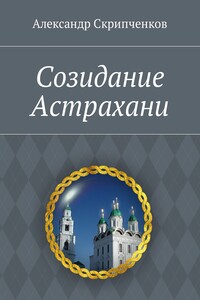
Дорогие астраханцы и друзья нашей замечательной каспийской столицы! В своей книге я хочу предложить вашему вниманию краткий обзор строительства города Астрахани и возникновения крупных подрядных строительных организаций. Труд многих сотен людей воплотился в создании нашего прекрасного города. Я посвятил эту книгу его строителям, созидателям, всем тем, кто своим трудом и талантом на протяжении многих лет создавал образ, красоту и величие города Астрахани. А. И. Скрипченков.
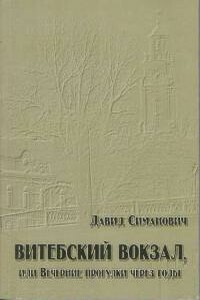
"Витебский вокзал, или Вечерние прогулки через годы" - дневники за полвека (1946-1995 ггю) известного поэта Давида Симановича, автора более двадцати книг поэзии и прозы, лауреата Шагаловской премии и премии имени Владимира Короткевича.
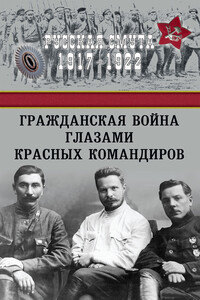
Предлагаемый читателю сборник содержит очерки красных командиров и военных специалистов о Гражданской войне и интервенции. Каждый очерк – рассказ об отдельно взятой кампании или операции, и хотя книга готовилась к изданию в конце 1920-х годов, она не утратила актуальности и по сей день. Все авторы сборника (кроме П.П. Лебедева) – А.С. Бубнов, И.И. Вацетис, А.И. Егоров, Н.Е. Какурин, С.С. Каменев, М.Н. Тухачевский, Р.П. Эйдеман – были репрессированы в 1930-е годы. В настоящее издание не вошли очерки, рассказывающие о советско-польской войне.
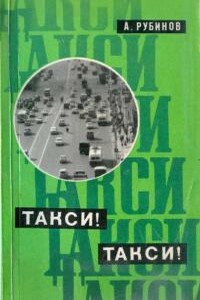
В 1975 году московские таксисты справят свой юбилей. 50-летию появления па столичных улицах машин с шашечками на бортах и посвящается настоящая книга. В книге представлены очерки о сегодняшнем и вчерашнем дне такси. В них рассказывается о Москве и великих преобразованиях происшедших в ней за полвека. Конечно, в центре всех событий - водители такси, их подвиги и приключения, из которых слагается ежедневный нелегкий труд этих людей. Книга рассчитана на массового читателя.
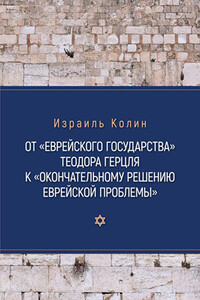
«„Окончательное решение еврейской проблемы“ является естественным продолжением работы Теодора Герцля „Еврейское государство“ для изменившейся политической обстановки на Ближнем Востоке, где образовалось еврейское государство, и новых технических возможностей, появившихся за этот промежуток времени…».
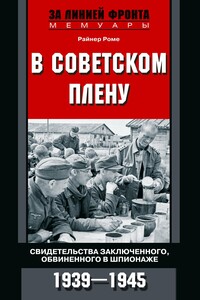
Райнер Роме не был солдатом вермахта, и все же Вторая мировая война предъявила ему свой счет: в 1945 г. в Маньчжурии он был арестован советской разведслужбой по подозрению в шпионаже против СССР. После нескольких месяцев тюрьмы Роме оказывается среди тех, кто впрямую причастен к преступлениям фашистской Германии – в лагере для немецких военнопленных. В своих воспоминаниях Роме описывает лагерное существование арестантов: тяжелый труд, лишения, тоску по родине, но эти подробности вряд ли поразят отечественного читателя, которому отлично известно, в каких условиях содержались узники немецких лагерей смерти. В формате PDF A4 сохранен издательский макет книги.